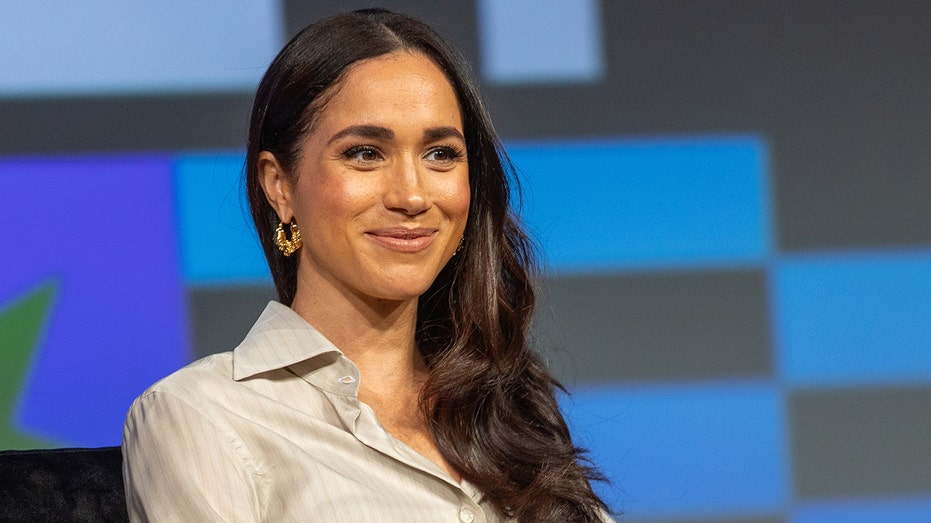The relationship between the British royal family and Meghan Markle has often been fraught with tension, and recent developments have led to speculation about the financial implications of her actions. According to various experts, Markle’s business ventures could become the royal family’s greatest challenge, raising questions about the future of the monarchy and its public image.
Since her departure from royal duties alongside Prince Harry in early 2020, Markle has been vocal about her experiences within the royal family. She and her husband now reside in California, where they have pursued numerous endeavors, including philanthropic projects and production deals. Some analysts suggest that these efforts may be part of a broader strategy to secure financial independence, a move that has not gone unnoticed by observers of royal affairs.
One area of concern is Markle’s recent foray into various media projects, including a reported deal with streaming giant Netflix. When they announced their collaboration, the royal couple hinted at producing original content that would include documentaries, children’s programming, and scripted television shows. The substantial financial backing provided by Netflix has led experts to speculate whether this might fuel further disputes between Markle, Harry, and other members of the royal family.
Experts caution that Markle’s ongoing public presence and business strategy might undermine the royal family’s carefully curated image. The Windsors have long been seen as a symbol of tradition and stability. Yet, as they navigate an evolving social landscape, the family’s legacy may be jeopardized by associations with controversial or sensationalized media productions.
Moreover, many observers argue that Markle’s financial aspirations may reflect deeper motivations, potentially including a desire for autonomy and individual identity. Having faced significant media scrutiny and public criticism, some experts believe that Markle’s focus on building her brand is a response to her experiences as a working royal.
The Duchess of Sussex’s recent podcast series titled “Archetypes” showcases her commitment to discussions surrounding feminism and empowerment. While the series has garnered a mixed response, it has undoubtedly placed her back in the media spotlight and continues to sway public opinion about both her and the royal family.
Furthermore, experts argue that Markle’s business activities might instigate an ongoing reckoning within the monarchy. As royals enter the realm of personal branding and business, it raises critical questions regarding the role and responsibilities of the royal family. Their formal identity, which traditionally revolves around duty and service, appears increasingly at odds with the dynamics of popular culture and commercialism.
There is also the issue of potential financial disparities arising from Markle’s business ventures. Some analysts have pointed to discrepancies between her earnings and royal traditions, positing that such inequalities could lead to public discontent among royalists. Should the royal family’s investments or earnings be overshadowed by those of Markle and Harry, it could foster resentment toward the monarchy.
The public reaction to Markle’s pursuits has ranged from enthusiastic support to harsh criticism. Some of her supporters argue that she represents a modern interpretation of royal expectations, while critics contend that her actions are self-serving and undermining the institution. This polarization further complicates the relationship between Markle and the royal family, especially as they navigate their connection to the British public.
The potential impact of Markle’s financial pursuits has significant implications for the future of the monarchy. Some experts suggest that her path might encourage other royals to explore personal business ventures, challenging conventional norms regarding royal conduct. If one member of the royal family can break from tradition, it raises questions as to whether others will follow suit, fundamentally altering the fabric of royal expectations.
Moreover, the growing intersection between celebrity culture and the royal family introduces a new dimension to their public personas. Royal family members transitioning into the entertainment realm may find themselves at odds with what many perceive as their primary obligation: serving the people of the United Kingdom and upholding the dignity of the monarchy.
Additionally, there exists a tension between authenticity and performance. Royals have historically been expected to maintain a certain level of decorum, avoiding any semblance of commercialization. If members of the royal family begin to embrace branding strategies akin to those of celebrities, it could tarnish their reputation and leave both the institution and the public wondering about the integrity of the monarchy.
Some argue that Meghan’s actions in pursuing financial security underscore significant trends in modern society, particularly regarding the empowerment of women and personal agency. In this light, her endeavors can be interpreted as a statement of autonomy against traditional confines, which—while admirable—may be difficult to reconcile with her role as a member of the royal family.
As the royal family continues to deal with its internal dynamics, they may face increased scrutiny from the media and public. Analysts propose that they should consider how to adapt to an evolving landscape wherein personal branding and media presence play an indispensable role in public perceptions of the monarchy.
Ultimately, experts assert that Meghan Markle’s business ventures could serve as both a catalyst for change and a point of contention for the royal family. As she pursues financial opportunities, the implications for the royal family will likely reverberate beyond just financial matters, posing broader questions of identity, legitimacy, and future direction.
While it remains to be seen how these tensions will manifest in tangible outcomes, one thing appears certain: the intersection of royal tradition and modern celebrity culture will continue to generate conversation and debate for the foreseeable future. Given the high stakes at play, both the royal family and Markle must navigate their respective paths carefully, considering the weight of history as they move forward.
As the public currency of the monarchy shifts, experts suggest that the royal family can benefit by embracing some elements of the modern media landscape while attempting to remain true to their legacy. Striking this balance will be critical as they seek not just to coexist with new narratives but also to redefine their future in light of emerging realities.
































